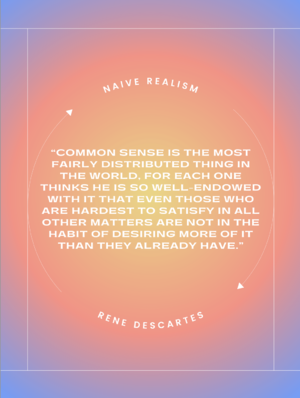The Objectivity Assumption
We often assume that our perceptions are accurate and objective reflections of reality, but they are actually mental constructs shaped by our minds. This cognitive distortion, known as the "bias blind spot" or "naïve realism," is one of the most widespread cognitive bias in society. It's so pervasive that it often leads to a related bias called the "assumed similarity bias," where individuals believe that their personal interpretation of the world is shared by others.
Contrary to the belief that our perceptions mirror reality, human perception is an abstraction, not a replication, of the world around us. Our brains construct an internal representation of external events by analyzing various features. For example, colour perception is not a direct reflection of reality; colours are synthesized by our brain to differentiate light wavelengths. This means colour is an illusion, and it's uncertain if other animals perceive it as we do.
This assumption of objectivity persists because our brain's model of the world feels real, aiding our survival. Acknowledging the subjectivity of our perceptions can be uncomfortable and challenge our beliefs, leading to cognitive dissonance. Societal norms further reinforce this belief in objectivity, rewarding confidence and discouraging questioning.
However, recognizing our biases is essential. While our perceptions are subjective, this doesn’t mean all perceptions are equally valid or that objective truth doesn’t exist. It simply means we must actively challenge our cognitive biases to approach a more accurate understanding of the world.
